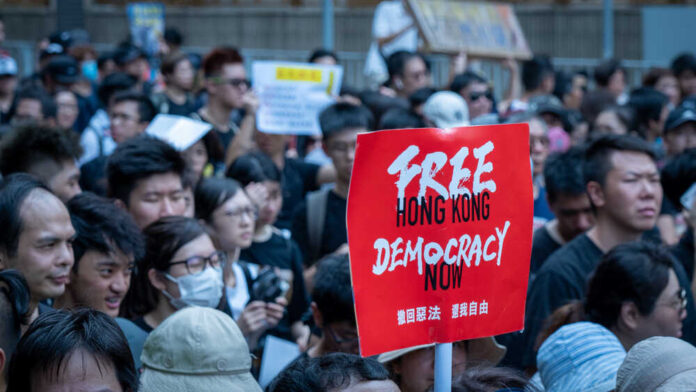On Monday, the administration of Hong Kong declared its intention to appeal a recent court judgment that did not prohibit a prominent protest song. This has sparked worries about the city’s free speech climate deteriorating even more.
After a massive pro-democracy protest in Hong Kong four years ago galvanized hundreds of thousands of people, the court’s judgment on July 28 was a defeat for officials who strive to crush dissenters.
The famous song “Glory to Hong Kong,” produced during the 2019 demonstrations, caused a stir when it was mistakenly played as the city’s anthem at international sports events instead of China’s “March of the Volunteers.”
The Department of Justice said that its secretary, as protector of the public interest, pushed for the ban to safeguard the country’s safety. The court has the discretion to decide whether or not to hear the appeal.
The department did not elaborate on the appeal’s legal basis in the statement.
After receiving pressure to appeal from various MPs who favor Beijing, the administration made the decision. Concerns about the possible outcomes of the government’s decision to outlaw the practice have been voiced.
Since the 2019 demonstrations, Beijing has ramped up its repression, and some fear that granting the request to restrict the song’s broadcast or distribution might further weaken human freedoms. They warned that the city’s attractiveness as a business hub might be hurt if the court order was granted since it could disrupt the operations of digital giants.
In June, the government sued Google when the search engine refused to prioritize China’s national song above Glory to Hong Kong when users searched for the city’s anthem.
The proposed injunction is directed at those who sing the song to promote Hong Kong’s independence from China. The government will try to outlaw any online or offline activities that use the music to encourage people to break away and denigrate the national anthem.
Hong Kong was a British colony until 1997, when it was restored to Chinese control with the promise of continued Western-style civil rights for the next 50 years. Beijing’s national security statute and other recent reforms have diminished the city’s traditional openness and freedom.














